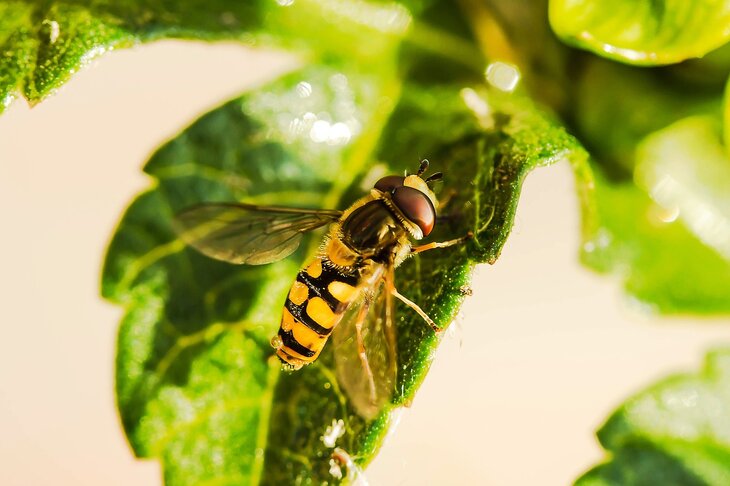The carrot fly is a real scourge for gardeners, capable of destroying a significant portion of the harvest.
This small but dangerous pest causes serious damage to carrot crops every year.
However, gardeners have effective control methods based on knowledge of the insect's weak points.

Strong odors
The carrot fly has a sensitive sense of smell, which helps it find host plants. However, this feature can be used against it. Strong odors can disorient the insect and scare it away from the beds.
Particularly effective are aromatic herbs and plants such as onions, garlic, wormwood and marigolds.
Planting these crops next to carrots creates a natural barrier that the carrot fly tries to avoid.
Tobacco dust
One of the proven means of combating carrot fly is tobacco dust. Insects cannot stand its smell and avoid areas treated with this substance.
Tobacco dust is scattered between rows of carrots or used to prepare an infusion for spraying plants.
It is important to remember that the treatment must be repeated after each rain or watering.
Naphthalene
Although the use of mothballs in the garden is controversial, many gardeners note its effectiveness in combating carrot flies.
The strong smell of mothballs repels insects, preventing them from approaching the beds.
However, it is important to take precautions and not allow mothballs to come into contact with plants or soil.
Change in sowing dates
Carrot fly is active at certain times of the season. Changing traditional carrot planting dates can help avoid peak pest activity.
Early sowing in April or late sowing in June-July allows the plants to get stronger before the carrot fly appears or to avoid its invasion altogether.
Mulching
Using mulch in carrot beds can significantly reduce the risk of carrot fly infestation.
A layer of mulch made from sawdust, straw or special mulching film prevents the fly from laying eggs in the soil around the plants.
In addition, mulch retains moisture and suppresses weed growth, creating unfavorable conditions for the development of pest larvae.
Regular watering
The carrot fly prefers to lay eggs in moist soil. Paradoxically, regular watering can help in the fight against this pest.
Frequent but shallow watering keeps the top layer of soil moist, which encourages female carrot fly to lay eggs closer to the surface.
This makes eggs and young larvae more vulnerable to desiccation and other adverse factors.
Vinegar solution
Vinegar solution is another effective remedy for carrot fly control.
Insects cannot stand the smell of vinegar and try to stay away from areas treated with it.
To prepare the solution, table vinegar is diluted with water in a ratio of 1:10 and the plants and the soil around them are sprayed with it.
Companion plantings
Proper planting planning can significantly reduce the risk of carrots being attacked by carrot fly.
Growing carrots together with onions, garlic or herbs creates a protective barrier of odors that repel pests.
Planting carrots interspersed with onions is especially effective - the smell of onions masks the aroma of carrots, disorienting the carrot fly.
Use of covering material
A physical barrier in the form of covering material can provide reliable protection against carrot fly.
Lightweight non-woven material stretched over the beds prevents insects from reaching the plants.
It is important to cover the plantings immediately after the emergence of seedlings and maintain the cover until the end of the pest activity period.








